Believe it or not, there are many vegetables found in salads and smoothies that should NOT be eaten raw. This post goes over some of the common vegetables you should never eat raw. Brace yourself! It may be shocking! 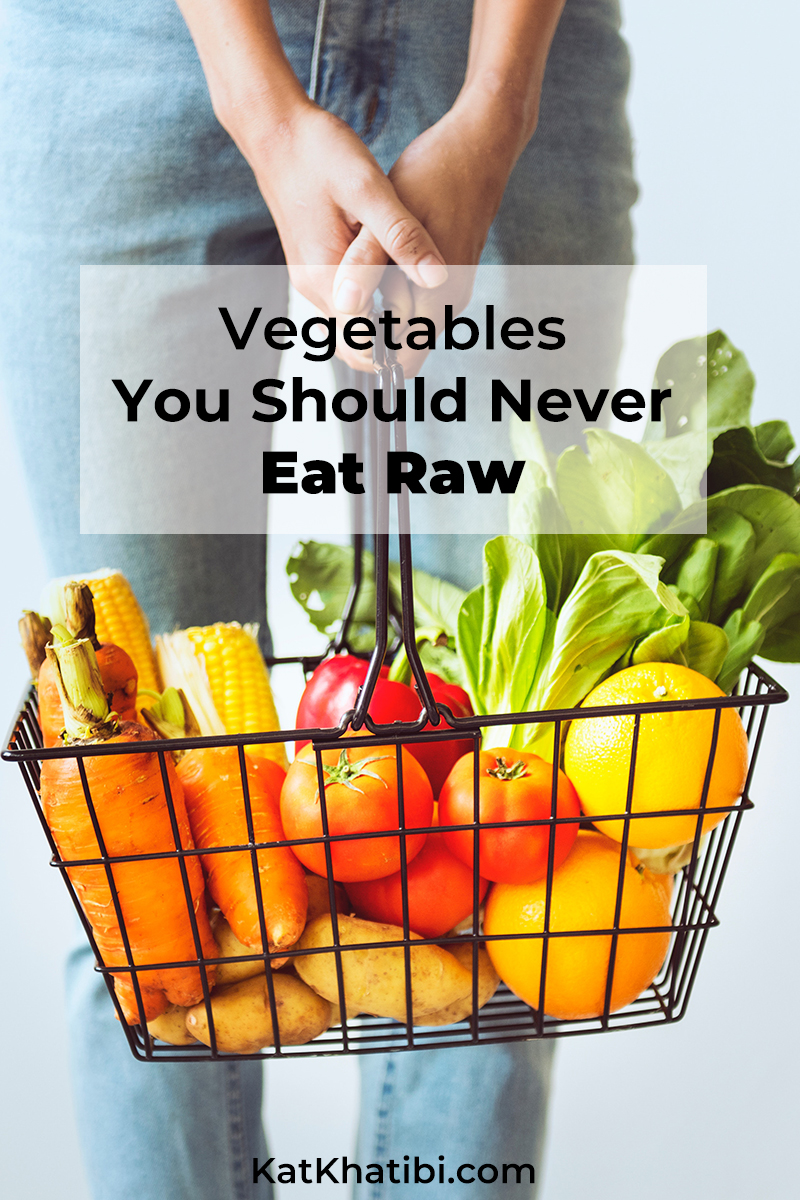
Vegetables You Should Never Eat Raw
1. Asparagus
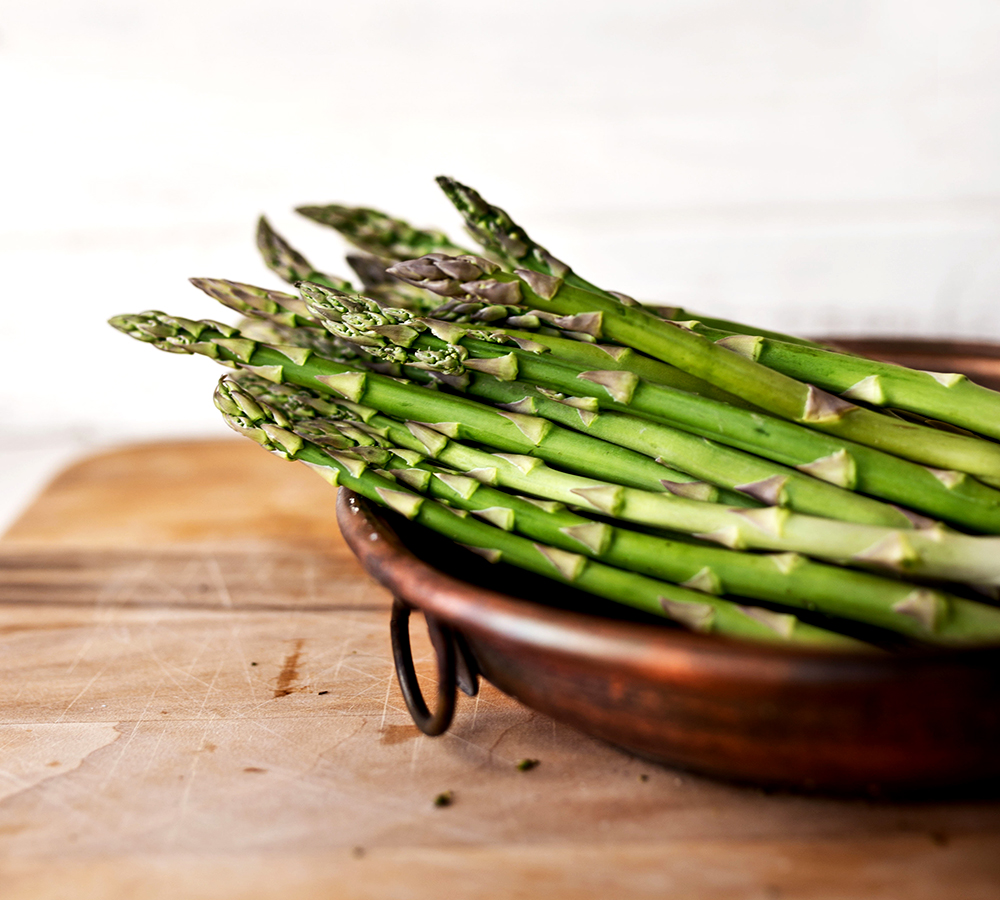 It won’t harm you to consume asparagus raw, but cooking this vegetable first helps your body absorb more of its cancer-fighting nutrients. Try it classically steamed or sautéed with a little olive oil and lemon juice.
It won’t harm you to consume asparagus raw, but cooking this vegetable first helps your body absorb more of its cancer-fighting nutrients. Try it classically steamed or sautéed with a little olive oil and lemon juice.
2. Mushrooms
Raw, edible mushrooms such as the common white mushroom contain toxic substances such as agaritine, a suspected carcinogen. These substances are heat sensitive and are neutralized by cooking.
Not only should mushrooms not be eaten raw, but you’ll receive more of the potassium-rich benefits if you take the time to sauté, roast or grill them.
3. Tomatoes
OK, so it’s probably a stretch to say you should never eat tomatoes raw—they are delicious on top of a sandwich or salad, after all—but your body can absorb more lycopene from cooked tomatoes. Since lycopene is known as a cancer-fighting ingredient, make sure at least some of the tomatoes you eat are stewed up in soup or sauces. Traditionally, tomatoes are cooked long periods of time with the seeds and skins removed. This is because of lectins, which can cause digestive distress. Whenever possible, remove the skins and seeds then cook for a long time.
 5. Potatoes
5. Potatoes
You probably wouldn’t want to eat potatoes raw, but there’s actually a very good reason you shouldn’t. Not only do raw potatoes contain toxins and anti-nutrients that can harm your body, but their uncooked starchiness can also cause digestive discomfort. Instead, boil, bake or roast this vegetable. When uncooked, potatoes contain hemagglutinins that disrupt red blood cell function and sweet potatoes will give you gas.
6. Brussels sprouts
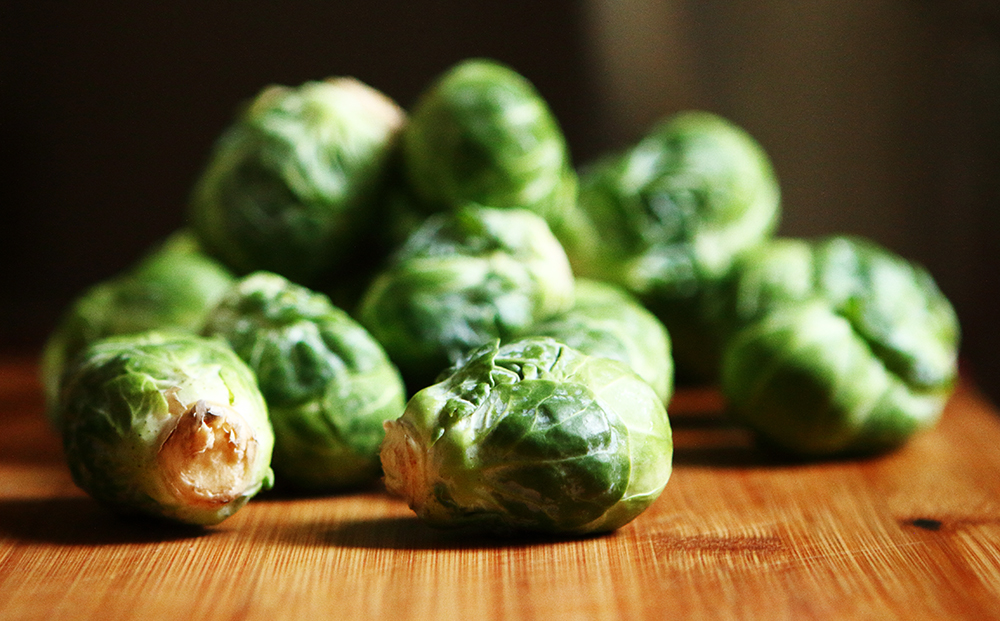 Brussels sprouts are another vegetable that can cause gas and bloating if consumed raw. Instead, try tossing in olive oil and a little salt and roasting for improved flavor and easier digestion.
Brussels sprouts are another vegetable that can cause gas and bloating if consumed raw. Instead, try tossing in olive oil and a little salt and roasting for improved flavor and easier digestion.
7. Broccoli and Cauliflower
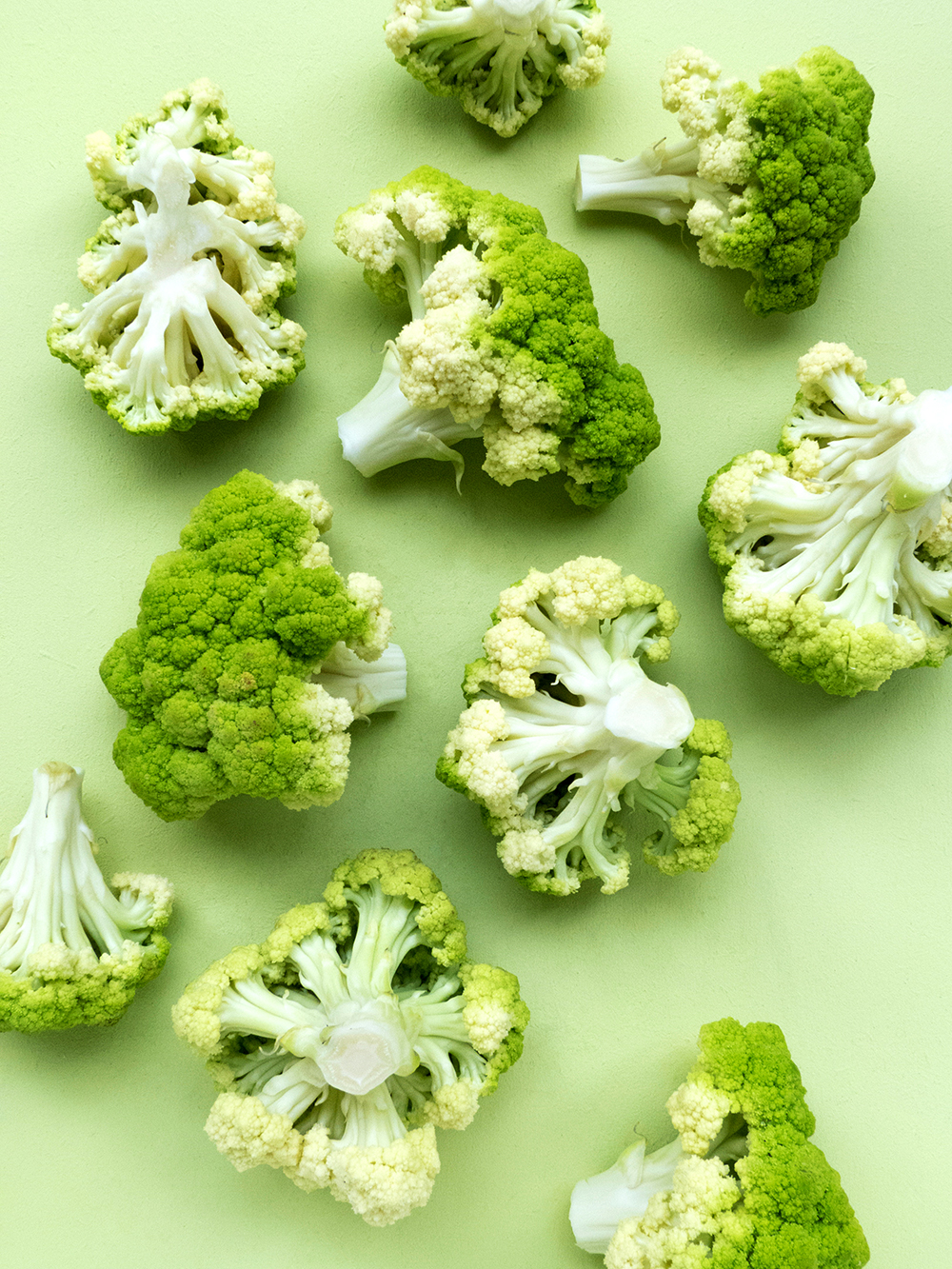 Both of these vegetables can be consumed raw—in fact, broccoli can even have more of a positive nutritional impact when eaten uncooked—but many people struggle to digest these cruciferous veggies in their natural state. Try lightly steaming to retain the liver-cleansing enzymes and allow for easier digestion. However, if consumed raw, they can negatively impact your thyroid.
Both of these vegetables can be consumed raw—in fact, broccoli can even have more of a positive nutritional impact when eaten uncooked—but many people struggle to digest these cruciferous veggies in their natural state. Try lightly steaming to retain the liver-cleansing enzymes and allow for easier digestion. However, if consumed raw, they can negatively impact your thyroid.
8. Spinach
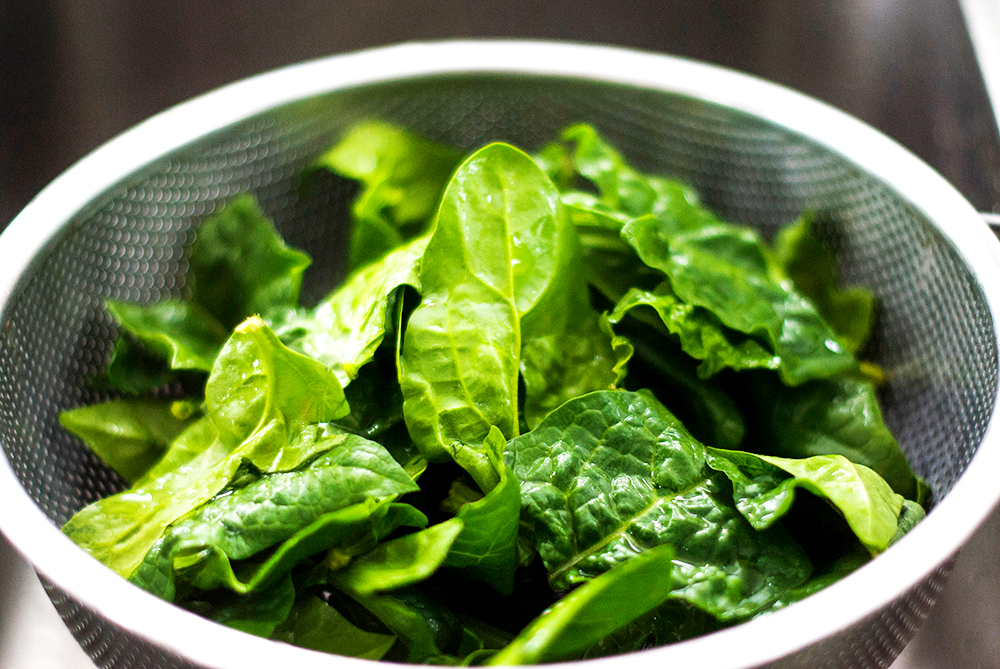 Cooked spinach contains more calcium, iron, and magnesium. Even though you probably see it most often as a salad green, try adding wilted spinach to your favorite pasta or as an ingredient in your morning omelet.
Cooked spinach contains more calcium, iron, and magnesium. Even though you probably see it most often as a salad green, try adding wilted spinach to your favorite pasta or as an ingredient in your morning omelet.
Here is the list of common cruciferous vegetables that you do not want to be eating raw if you want to protect your thyroid gland!
Arugula, broccoli, kale, maca root, cauliflower, cabbage, turnip, collard greens, bok choy, brussels sprouts, radish, rutabaga, and watercress.
Notice that many of these vegetables are commonly included in fresh veggie juice blends or in salads. While an occasional arugula salad or cup of coleslaw is not going to do harm to most folks, it would be wise not to make a habit of eating/drinking any of these vegetables in raw form. Thankfully, Kale chips are a safe choice.
Raw Vegetable Greens
The good news is that oxalic acid is reduced by a light steaming or cooking. Just be sure to discard the vegetable cooking water.
Veggies containing oxalic acid include spinach, chard, parsley, chives, purslane and beet greens.
Hmmmm. Spinach is known for being high in iron, yet eating it raw will not necessarily give you the iron you want because of the oxalic acid?
Yep, that’s right. Cook that spinach first if you are seeking an iron boost without indigestion and don’t get hooked on the raw spinach salads!
Don’t stress about munching the parsley garnish on your next gourmet dinner, though. A little bit here and there is not going to cause a problem. Eat a big spinach salad every day and it is virtually certain you will eventually succumb to kidney stones, according to Dr. William Shaw, Director of The Great Plains Laboratory for Health, Nutrition, and Metabolism.
Other Raw Vegetable Cautions
Alfalfa sprouts are mildly toxic and inhibit the immune system. Eating them on a frequent basis can even contribute to inflammatory arthritis and lupus!
Dr. Weston A. Price’s Take On Raw Vegetables
This information isn’t new. In fact, take note of a letter Dr. Weston A. Price wrote to his nieces and nephews in 1934. In this letter, he advised them to eat their vegetables cooked in butter. His research found that the bulkiness (fiber) of raw vegetables interfered with the human body’s ability to extract minerals from them via the digestive process.
So, should you drink your veggies raw? Of course. Raw vegetable juice made from veggies that are safe to consume uncooked is a wonderful way to get a fast infusion of easy to digest, colloidal minerals. It is also highly alkalizing to the body and a proven way to gently detox the gut.
The great thing about veggie juice is that the fiber is removed, which is the “bulkiness” that Dr. Price found interfered with the mineral absorption. Of course one must still consider that other than fiber certain vegetables (mentioned above) still must be cooked as their danger is not a fiber issue. If you cook your spinach before sneaking it into your smoothies, avoid boiling it — the water leaches important nutrients. When added to your smoothie, steamed spinach will give off a dark green color, but it won’t affect the taste or texture.
However, if you are going to eat the fibrous portion of the vegetable, it is best to cook them in butter as advised by Dr. Price to enhance the availability of the minerals. The fat in the butter permits greater absorption of the minerals, and besides, buttered veggies taste fantastic!
What Vegetables Should You Safely Add To Smoothies?
When looking up what raw veggies are safe to consume, it’s usually because you want to make a smoothie. Stay tuned to the blog because it’s my next post. It’s a MEGA POST too! But for now, remember as long as you don’t eat most of these daily, and keep them raw in small quantities, it should be fine. You don’t want to drink a kale shake daily, but here and there I wouldn’t worry about it harming your thyroid.

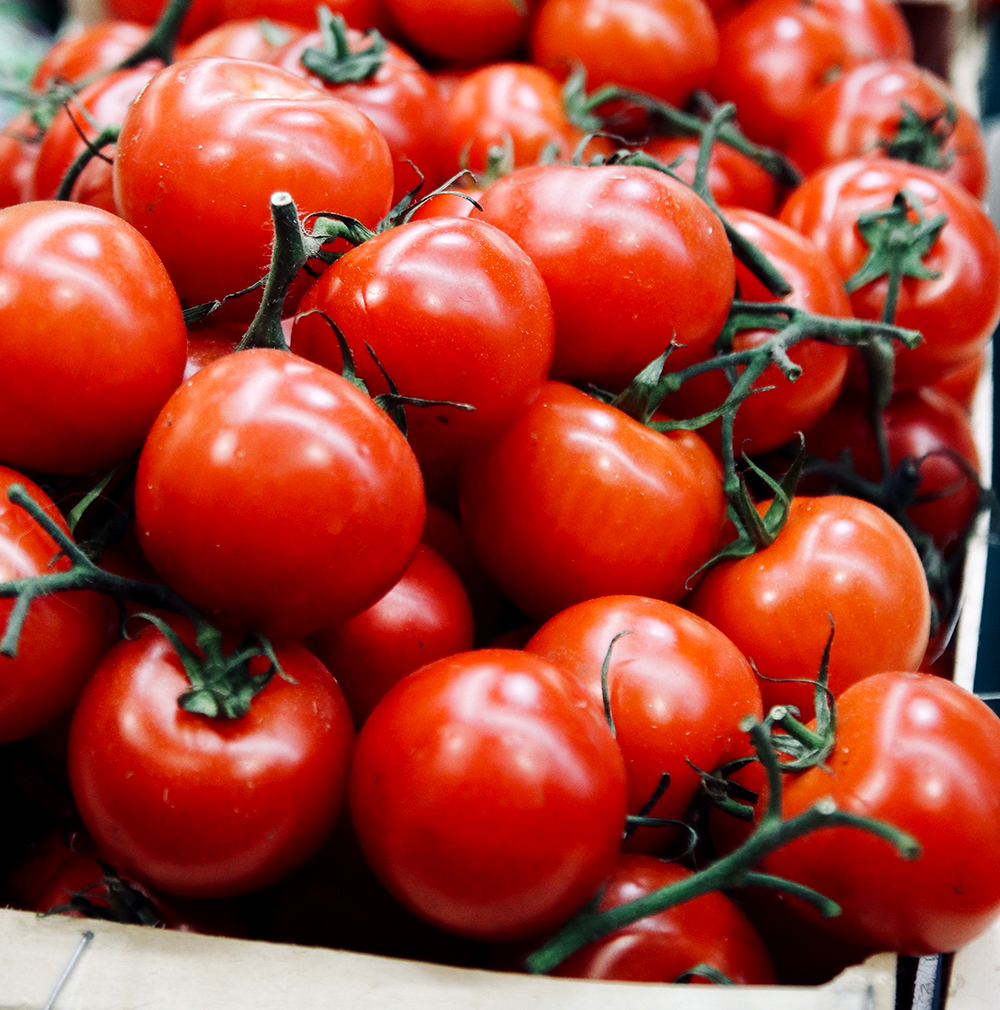 5. Potatoes
5. Potatoes